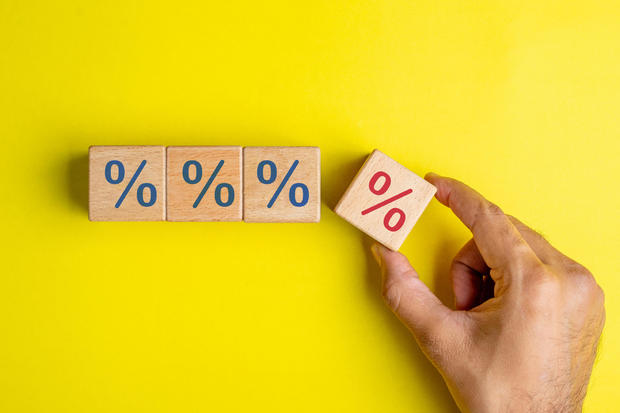Will credit card interest rates fall this December?
Over the past few years, borrowing costs surged, leaving many borrowers facing mounting financial burdens as they try to manage their growing credit card balances. And, as the holiday season approaches — and spending increases — more cardholders are eyeing their credit card statements with concern, wondering whether the high interest rates they've been grappling with will finally cool. After all, while the rate environment has been easing recently, credit card interest rates have remained at historic highs.
At an average annual percentage rate (APR) of over 23%, today's credit card interest rates are squeezing many people's budgets, especially for those carrying significant balances. For example, a cardholder with $8,000 in card debt, which is the average amount of credit card debt cardholders are carrying right now, would pay over $1,800 in interest charges each year if only the minimum payments were made. When you factor in the compounding nature of those interest charges, the credit card debt cycle can be tough to break.
As a result, many cardholders are hoping for the credit card rate environment to ease as the year comes to a close. But are credit card interest rates likely to drop this December, easing some of the pressure on cardholders? That's what we'll examine below.
Need help with your credit card debt? Explore your options here.
Will credit card interest rates fall this December?
While credit card users may be hoping for some relief via lower card rates, the short answer is no — credit card interest rates are unlikely to fall significantly this December. While there's always a chance it could happen, in general, credit card interest rates rarely decline, even when other types of borrowing costs decrease. That's because the mechanisms that determine credit card APRs are different from those influencing other types of loans.
One of the main factors is that credit card debt is unsecured, meaning there's no collateral backing it. This makes it riskier for lenders compared to secured loans like mortgages or car loans. To offset this risk, card issuers build in higher interest rates and are reluctant to lower them, even when the economic landscape shifts. The elevated risk factor creates a natural barrier to significant APR reductions.
Credit card issuers also tend to respond asymmetrically to Federal Reserve actions. While they are quick to raise rates following Fed rate hikes to protect their margins, they tend to delay passing on benefits to consumers when rates are cut. This discrepancy is partly because credit cards are a major profit center for financial institutions. Lowering rates voluntarily could eat into those profits, making issuers hesitant to act unless competitive pressures force their hand.
Another important consideration is the recent trend of rising credit card interest rates. Over the past decade, average APRs have climbed steadily, driven by inflation, consumer spending habits and shifts in risk assessment models. So even when economic indicators like inflation cool, credit card rates remain unlikely to reverse course quickly because issuers also consider market competition, operating costs and regulatory changes when setting rates.
Start comparing your debt relief solutions here.
How to lower your credit card rates this December
If credit card interest rates are unlikely to drop on their own this month, what can you do to secure lower rates? Here are three strategies to consider:
Use a balance transfer to temporarily wipe out interest
One of the most effective ways to reduce your interest burden is to take advantage of a balance transfer offer. Many credit card issuers provide promotional 0% APR periods for new cardholders, typically lasting 12 to 21 months. By transferring your high-rate balances to a card with no interest for a set period, you can focus on paying down your principal without accruing additional charges.
Lower your card rates with debt consolidation
If you have multiple credit card balances, consolidating your debt into a single loan with a lower fixed interest rate can provide significant relief. Debt consolidation loans allow you to simplify your payments and save on interest over time. These loans typically have lower APRs than credit cards, especially for borrowers with strong credit, so taking this route can help you save significantly on interest charges.
Negotiate lower rates with a debt management program
Another option for lowering your card rates is to enroll in a debt management program. These programs, which are offered by credit counseling agencies, can help you save on interest by working with your creditors to lower your interest rates and establish a structured repayment plan. While these programs won't eliminate your debt like other types of debt relief can, they can make it more manageable.
The bottom line
While many cardholders are hoping credit card interest rates will fall this month, these rates are unlikely to see significant reductions this December due to their unique structure and the cautious approach of issuers. If you're burdened by high-rate card debt, waiting for rates to drop may not be the best strategy. The better plan is typically to take proactive steps — such as exploring balance transfers, consolidating debt or enrolling in a debt management program — to create a path toward financial stability.




